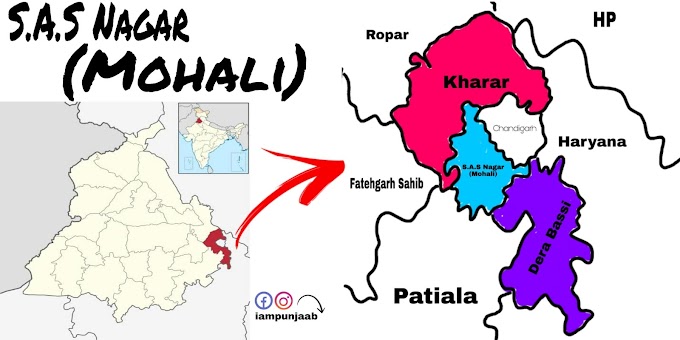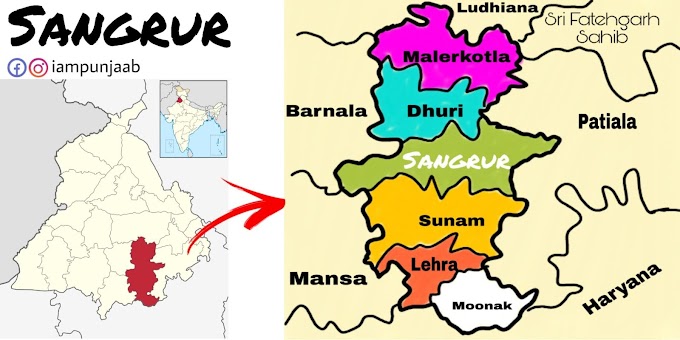 |
| In pic, Guru ji demanding Heads from 5 sikhs, serving them Amrit and at last the site where this historical event was happened takth Sri Keshgarh Sahib, Punjab |
The seasons are changing year by
year and with these changes many festivals of Punjab are connected. The most
popular of these is the Baisakhi festival of Punjab. There are several
incidents in the history of Baisakhi Day, in which the foundation of the Khalsa
Panth is the important religious event in the Sikh history and added the religious significance in the traditional celebration
of this festival. On the day of Baisakhi in 1699 AD, Tenth Guru Gobind Singh Ji
of the Sikhs, the birth of the Khalsa Panth, stirred the people's oppressed
spirit. He taught them not to care about their lives in order to protect the
truth and the truth. The creation of the Khalsa Panth gave the Sikh community a
unique identity. Even in the crowd of thousands, the Khalsa, with its handsome
and simple appearance, seems to be the most isolated and recognizable from
afar. From that day onwards, the festival began to be celebrated in the name of
the Khalsa Panth's creation day, not only in Punjab but all over the country
and abroad.
Guru Gobind Singh ji understood
the mindset of the people, and when disaster strikes, everyone tries to hide,
no matter where they are. The Guru made a historic decision to change the
mindset of the people and to fill them with confidence, to walk in the path of
truth and to face the challenges in their lives. In fulfillment of this decision,
Guru ji had selected Baisakhi Day in 1699 AD and addressed a large gathering of
people at Takht Sri Kesgarh Sahib, Anandpur Sahib, Punjab, offering a sheesh (head)
of five Sikhs one after another. On hearing this, five Sikhs came forward one
at a time, at the behest of the Guru. Five Sikhs belonged to different castes.
The Guru made the Amrit in a pot and served to them. No other great example of
social unity and equality can be found. Guru ji addressed the five Sikhs as Panj Pyare (five beloved) and added the word 'Singh' to their name and gave a new
identity to the Sikh community. After this the Guru himself received the gift
of Amrit from the five Singhs and he ended the distinction between the Guru and
the disciple.
Khalsa means pure, clean, without
blemish. It means that the Khalsa will stay away from falsehood, deception,
cunning and dishonesty and will continue to work for the welfare of the people.
The Khalsa is a human being who believes in Akal Purakh (one God) and lives
with a high mind. The Guru transmitted supernatural power to the people of the
oppressed, tolerant, and humble nation by eliminating the discrimination of the
lowly. The people of the nation were able to fight against the oppressor by
making lions from Gidhar, who resisted the oppression, the brutality of oppressors,
the powerful Mughal regime and shook the roots of them from Punjab region with
bravery. The great task of raising the flame of knowledge was done by a great
human being as Guru Gobind Singh ji had
demonstrated.
Guru ji taught the Khalsa to
adopt five kakaars (kesha, kara, kanga, kachera, kirpan). In Sikhism, the
adornment of the turban is called the identity of the Sikh, which is a symbol
of Sardari. The turban depicts the Sikhs as royal lords, like kings, and
eliminates inferiority between each other's. Similarly, instead of using the old way of
meeting each other, both hands combined to exchange the word ‘Fateh’, which has
become very popular in the World during the Corona virus times. Even though
foreigners used to meet each other first hand shaking but, now they use this
method to meet each other and honor each other. Guru ji taught the Khalsa to
help a helpless and at the same time, by giving the message that the Khalsa
would not persecute anybody, nor would the persecution be tolerated. Guru ji created
the Khalsa and gave the Sikhs a message of simplicity in form, dress and
lifestyle and solidarity in community.
THANKS
IAMPUNJAAB










0 Comments